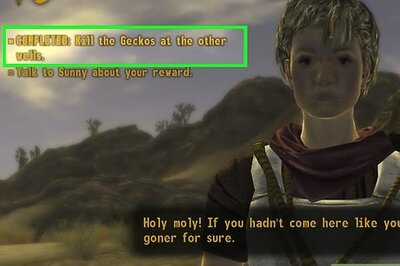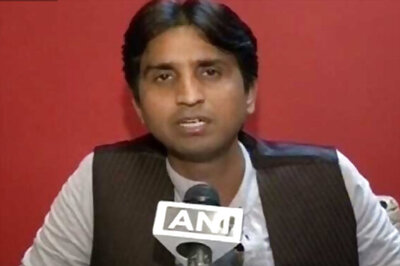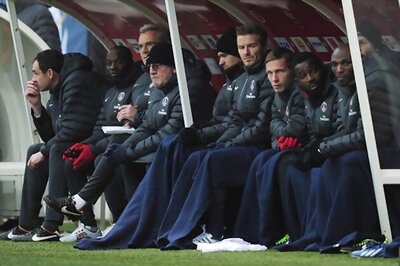
views
New Delhi: Forty-eight hours after India effectively scrapped special status of Jammu and Kashmir, Prime Minister Narendra Modi in a public broadcast sought to allay apprehensions among population in the Valley by laying the roadmap for development of the erstwhile state while reiterating the possibility of restoring full statehood in the future.
In his televised address, Modi said articles 370 and 35A were being used by Pakistan as a weapon against India to invoke anti-national sentiments among people and this had led to the loss of 42,000 lives in the region over the last three decades. By shedding the archaic laws, he said, the Union Territories had moved towards financial progress and a safer future.
"It is surprising that whoever you spoke to couldn't tell you the benefits of Article 370. The articles 370 and 35A had given Jammu and Kashmir separatism, terrorism, nepotism and nothing else,” Modi said.
Promising an employment boom in the region, Modi said all vacancies in government departments will be filled up very soon, Army and paramilitary services will run recruitment camps, and private institutions will be encouraged to conduct recruitment drives in the region. The negative effects of the huge fiscal deficit of the state will also be minimised, he said.
"The dream that Sardar Vallabhbhai Patel, Baba Saheb Ambedkar, Syama Prasad Mookerjee, Atal Bihari Vajpayee, and crores of patriots had seen is now a reality," Modi said in his opening remarks.
He said that government employees, including those working in the police force, would be extended all benefits, including salary perks like house rent allowance and health cover that public servants in other Union Territories already receive.
Modi also addressed the issue of impending elections, saying that Jammu and Kashmir was now primed to undo decades of neglect brought by family-oriented politics and nepotism. It was time for a youth-driven young leadership to take charge of the state politics, he said, adding, “I urge our daughters and sisters to come forward and take the reins of the state leadership.”
Modi dispelled doubts about the role of the legislative Assembly in the region.
"I want to clarify that your representative will be chosen only by you, the same way you have chosen your MLAs, MPs, cabinets, and chief ministers. We all will together combat and rid this region of terrorism and separatism. We all want fresh elections to take place, a new set of ministers, and chief minister. I assure you that you will get an opportunity to elect your representatives very soon with full transparency in the same manner that you have chosen your panchayat representatives," he said.
Modi said that thousands of West Pakistan refugees, who came to Jammu and Kashmir following the Partition and who still do not have voting rights in Assembly, municipal and panchayat elections, would now get voting rights. For the first time since their migration, get they will also an opportunity to participate in electing their political representatives, he added.
Article 370 had hampered the progress of the state, Modi said, depriving its vulnerable sections like women, daily wagers, children and Dalits of legal rights that were extended to these sections throughout the rest of the country.
The region was put directly under central government after a lot of thought, Modi said.
“Good governance and development has become visible on the ground over the last few months. The schemes that so far existed only in papers have come alive on ground. Work has started on decade-old projects. We have brought transparency to the administration on ground. We have brought IIMs and IITs, national projects, power projects. In the future, we are going to intensify work on connectivity projects, airport modernisation, road and rail links,” he said.
As an example of how the Kashmiri youth had already started down the path of integration, Modi spoke about the brothers of the slain Indian Army rifleman Aurangzeb. Nearly a year after Aurangzeb’s murder, the siblings had decided to join the Army themselves and serve the nation.
The government was working on providing Kashmir’s youth with new sports academies and a scientific environment to allow them to flourish and showcase their talent to the world, he said.
Modi also expressed hope that Kashmir would emerge from the current spell of preventive restrictions and normalise in time to celebrate Eid ul-Fitr next week.
Meanwhile, phone lines in the Valley are still down, Section 144 (that prevents the gathering of four or more people in public) is still in place, and former chief ministers Omar Abdullah and Mehbooba Mufti continue to remain under arrest in Srinagar.


















Comments
0 comment